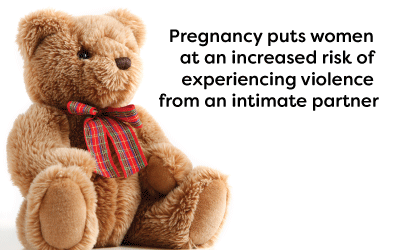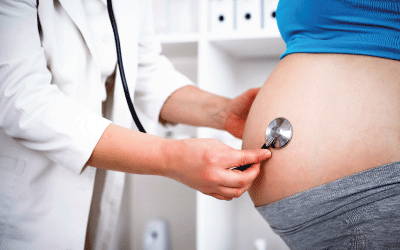Pregnancy Drastically Increases Domestic Violence Risk
Pregnancy should be a time when a woman receives extra care and attention. While some women feel great throughout their pregnancy, others face health complications. Whatever the pregnancy experience, growing a baby is hard work and this is a time when women need all the support they can get. Unfortunately, this doesn’t always happen. Many women not only lack support, but are also dealing with abusive relationships while they are pregnant. Although it’s hard for some of us to imagine, pregnancy puts women at an increased risk of experiencing violence from an intimate partner. If she is already experiencing abuse, this domestic violence often intensifies when a woman is pregnant.

Along with the usual risks associated with domestic abuse, the pregnant woman and her unborn child, face an increased risk of miscarriage, infection, premature birth, low birth weight, fetal injury and fetal death.
The recent murder of Arianna Goberdhan is a tragic reminder of the reality that pregnant women can face brutal and even deadly violence. On April 8th, a CBC headline screamed, Husband sought after wife, 9 months pregnant, killed in Pickering. Her baby did not survive.
Unfortunately, this kind of tragedy is far too common. We need to work harder to protect women from domestic violence, especially pregnant women and their unborn babies.
So what can we do?
For starters, we can...
Learn the facts:
- Young women, age 18-24, are more likely than any other age group to experience domestic or family violence during pregnancy
- Unintended pregnancy is often an outcome of an existing abusive relationship
- There are many long-term effects that babies experience when exposed to violence in utero, with research still emerging about these impacts
- Many times, women who are experiencing violence while pregnancy also deal with poor birth outcomes, such as low birth weight, premature babies, and prenatal and postnatal depression
- If a woman is already in an abusive relationship, she has a much greater chance of this violence intensifying
We can also learn how to help. Early intervention is key in helping women find their way out of abusive relationships and ensuring they are safe, protected and healthy during the duration of the pregnancy. Because women normally already have contact with healthcare professionals during their pregnancy, this can be an opportune time for her to discuss the abuse with a professional and seek help she might otherwise have felt unable to do. As a neighbour, friend or family member you can talk about this if you are worried about a woman close to you.

How to help:
- Healthcare professionals need to make sure they are knowledgeable about the typical warning signs and risk factors of domestic abuse and make sure they ask women when they notice them. Sensitive discussions about warning signs and risk factors should be part of routine care and asking more than once is very important. Women must be asked about the abuse only when they are alone, not with a partner.
- Friends, family members and neighbours also need to be aware of warning signs of domestic violence and understand how to connect a woman to supportive services
- Co-workers can learn about warning signs that are likely to show up in the workplace and they too can learn about local support services
- If a woman discloses abuse to a health care professional, or to a neighbour, friend or family member, they can make sure that she receives an appropriate referral for supportive counselling and if she is ready to leave, a referral for safe shelter. In Ontario, the Assaulted Women’s Helpline can help you to identify local services and supports.
- If a woman, discloses that she is experiencing abuse, the most important response is to believe her and to let her know that she does not deserve to be treated that way.
- Address her fears about the involvement of being involved with social services, including child protection services
- Women need to know they are respected and have support and a safe place
Resource:
https://aifs.gov.au/cfca/publications/domestic-and-family-violence-pregnancy-and-early-parenthood
